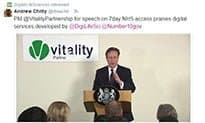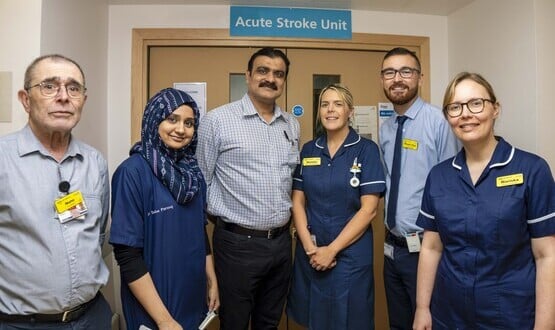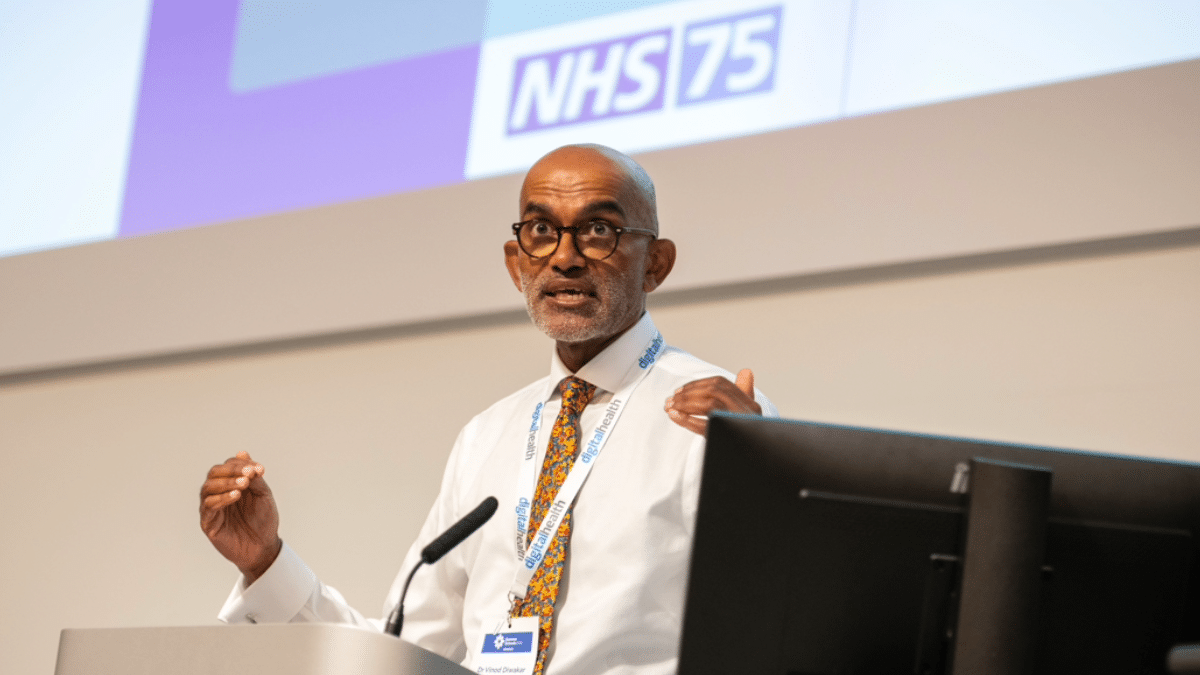Tech part of 7-day NHS – Cameron
- 18 May 2015

Prime Minister David Cameron today used his first major speech since the election to push forward the Conservative Party’s plans for a seven-day NHS, indicating that this would include making use of technologies such as Skype.
Speaking alongside NHS chief executive Simon Stevens at the Vitality Partnership GP organisation in Birmingham, Cameron discussed his “vision of a modern NHS working for you seven days of the week – when you need it, where you need it”.
He said: “By the end of this financial year, 18 million patients will have access to a GP at mornings, evenings and weekends. By the end of this Parliament I want that for everyone.”
Cameron indicated that this would be supported by a further extension of his Challenge Fund, which has already provided £150 million of funding in two waves for pilot projects.
Although the focus of this work has been on extending practice opening hours to evenings and the weekend, the fund has paid for projects that include new ways of accessing appointments and consultation services.
This includes work at ‘GP super-practice’ Vitality Partnership, which is able to connect GPs and patients in variety of ways, including the Vitality Health Hub app.
This app allows registered patients to book same-day GP and advanced nurse practitioner appointments on their smartphone and to submit requests for consultations by phone or Skype.
Cameron said that he wanted patients to make use of a service like Vitality Partnership rather than be “sent away with a pile of pills and end up weeks later in hospital.”
“Instead he comes to a place like this that brings together the full suite of care services he needs.
“He can use an app to book appointments for before or after work, order a repeat prescription online and have it delivered to his home and even use Skype, Facetime or email to get some advice without setting foot outside his front door.”
NHS chief executive Stevens also commented on the work at Vitality Partnership, which partnered with Digital Life Sciences to improve patient access to healthcare services.
“Easier appointments for patients. Convenient alternatives to A&E. Even the option to Skype your doctor direct from your mobile phone.
“Not pie in the sky. Happening right here, right now. Supported by more investment in primary care, closer working with hospital specialists, joined up care with the council. Also not pie in the sky.”
He added that secondary care could also benefit from similar redesign, saying: “Later this week I’ll be announcing the broadening of this work to include hospitals across England.”
Cameron also used his speech to repeat the Conservative manifesto pledge to provide at least an extra £8 billion a year to the NHS by 2020, which would support the development of a seven-day NHS.
However, the practicality of this was challenged by former health minister and Liberal Democrat leadership candidate Norman Lamb who told the Guardian that the ambition “needs additional resources”.
“At the moment we are well staffed through five days but have a lower staffing ratio on the weekends, and that would have to change,” he said.
Cameron’s plans have also come under fire from the Royal College of Nursing, which is concerned about nurses losing current levels of payment for unsocial hours and weekend working payments.
The RCN’s chief executive Peter Carter told the Independent: “Any attack on that and I do fear it would result in industrial action.”
Stevens used his speech to say that more information on how the NHS will find £22 billion of efficiency savings by 2020-21 will be set out in the next fortnight.
He said this would require “concrete, comprehensive, and sometimes controversial action” on three fronts: prevention; a “fundamental redesign” of NHS services; and putting NHS finances on a sound footing.
“We are going to need more funding. We have said at least £8 billion a year in real terms by the end of the decade. But precisely how much, and with what phasing, will depend on how radical and successful we are on prevention, care redesign, and the broader efficiency programme,” he said.
“None of this will be easy. In fact, the health service is entering probably the most challenging period in its 67 year history.”




